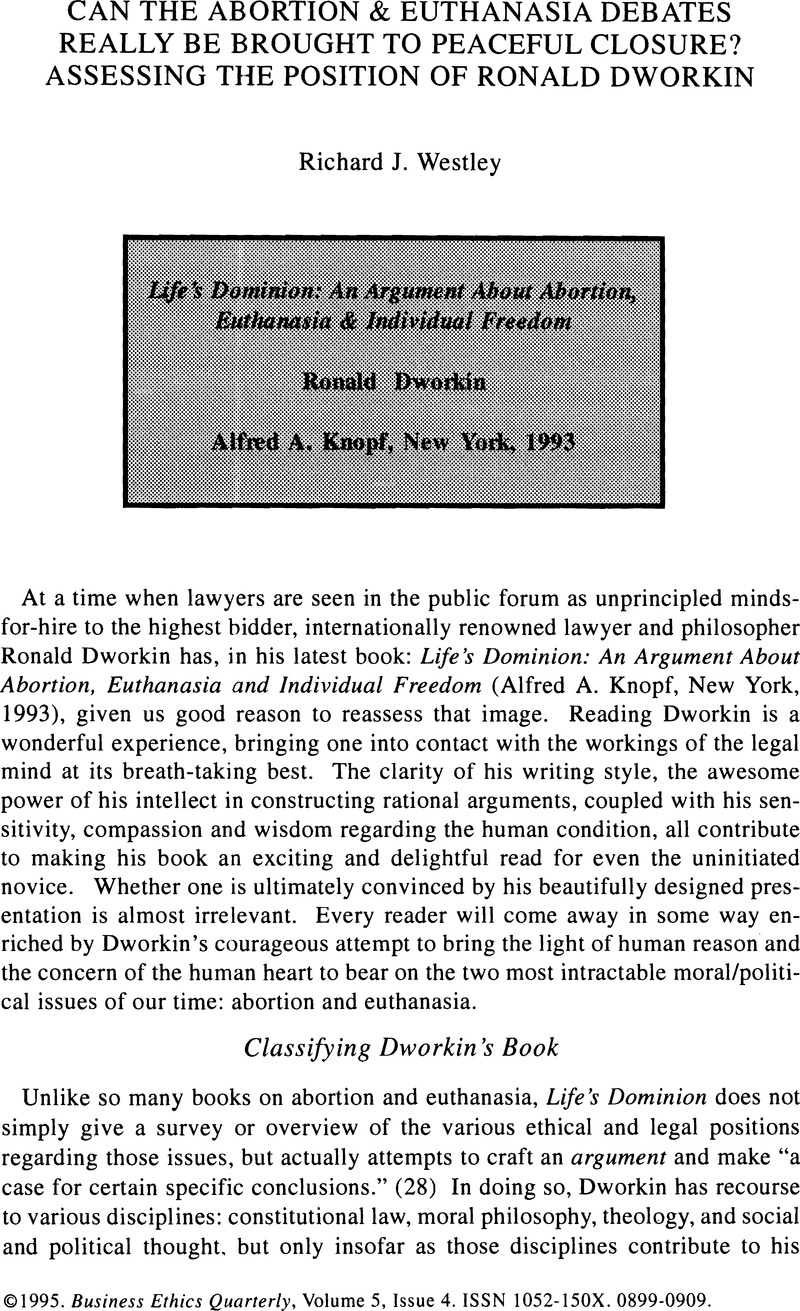No CrossRef data available.
Article contents
Can the Abortion & Euthanasia Debates Really be Brought to Peaceful Closure? Assessing the Position of Ronald Dworkin
Published online by Cambridge University Press: 23 January 2015
Abstract

- Type
- Review Articles
- Information
- Copyright
- Copyright © Society for Business Ethics 1995
References
1 See: What A Modern Catholic Believes About The Right To Life, Thomas More, Chicago, 1973; The Right To Die, Thomas More, Chicago, 1980; Morality And Its Beyond, Twenty-Third Publications, Mystic, 1984; Life, Death and Science, Thomas More, Chicago, 1989, and When It’s Right To Die: Conflicting Voices, Difficult Choices, Twenty-Third Publications, Mystic, 1994.
2 That fact alone does not justify a laissez-faire attitude toward abortion, since Dworkin factors in a second basic theme, i.e. the sanctity of human life.
3 If nothing else, Life’s Dominion embodies to a remarkable degree throughout its pages that sense of the sacredness of life, and attempts to convey that respect and sense of the sacred to the reader. That is one of the factors which led me to call it an “edifying” treatise as well as an argument.
4 Dworkin makes good use of this distinction in his compassionate and compelling arguments regarding the abortion of genetically defective fetuses (90) and the direct and indirect killing of the vegetative and terminally ill. (222–237)
5 Without doubt, Life’s Dominion avoids giving such insult, it is one of the most sensitive and intelligent encounters with the “complexity” of the life/death issues of abortion and euthanasia. The skeleton of the main parts of the argument which I have been presenting here does not do Dworkin justice, and should not be taken as reason to not read the book oneself.


